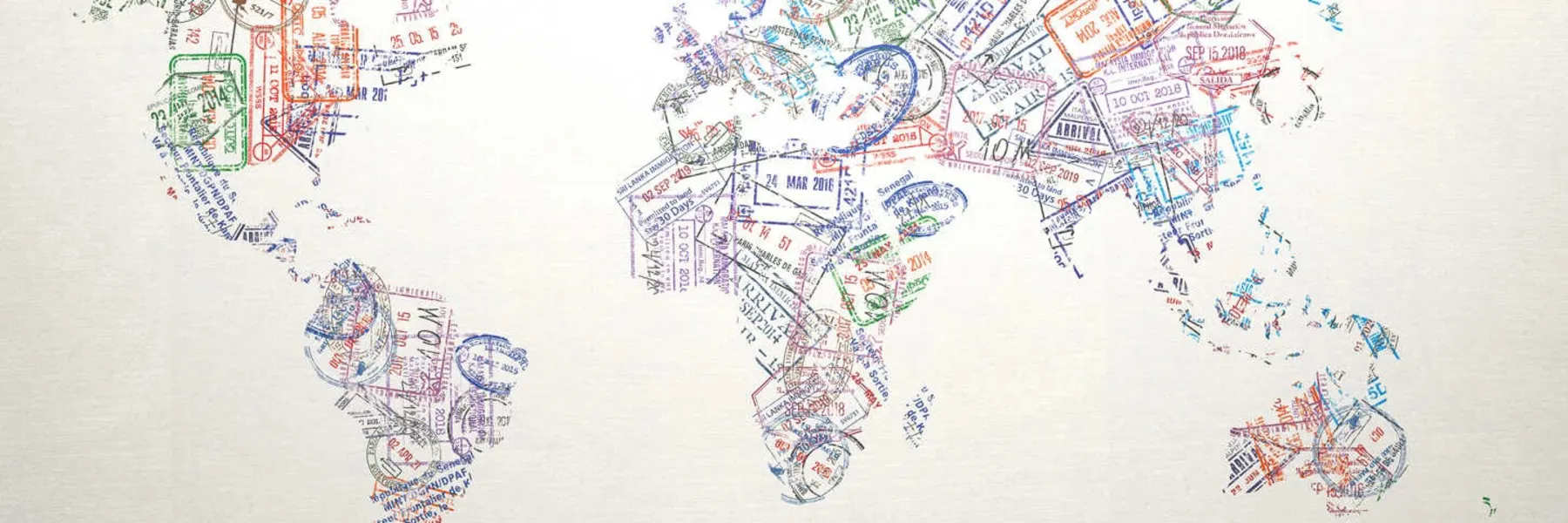The Fastest and Easiest Second Passports for Americans in 2025
7 min read
One of my roles here at International Living is to offer one-on-one consultations with people looking to move or invest abroad.
Lately, my metaphorical phone has been ringing off the hook. Just after the November election, and again after the inauguration in late January, I received dozens of requests from people looking for a Plan B overseas.
None of us here at International Living judge why people might want to do something like that. But I can tell you that the people I’ve spoken to run the gamut—from deep blue to the darkest red. It’s not the occupant of the White House that concerns them. It’s the increasing instability of the American political and economic system that’s got them worried.
The fact is, the United States is moving rapidly toward a place it’s never been. The scope and scale of the changes being pursued by the Trump administration have significant global implications, potentially reshaping the geopolitical landscape and prompting backlash at home and abroad.
As any smart investor will tell you, the one thing they dislike the most is uncertainty. Right now, uncertainty is the name of the game when it comes to having all of your eggs in the U.S. basket.
There are plenty of ways to move abroad. But there’s only one way to do it that gives you permanent and unlimited rights to remain outside the U.S., keep your roots there, and pass those rights on to your heirs.
That would be a second citizenship. Becoming a citizen of another country, as I have, gives you the permanent right to live, work, and invest in that country. It also gives you the right to that country’s passport, allowing you to travel as one of their citizens, not as a U.S. citizen.
So how does one go about doing that?
More importantly, how do you do it if you’re in a hurry?
Here are three ways to get out of dodge quickly and permanently…
According to Forbes, 133 million Americans could be eligible for an EU passport…
Our expert shows you 4 paths to a European passport (and the one he’s taking), plus the most common way for Americans to get a second passport in Europe.
Claim your free report and bonus video when you sign up for International Living’s Daily Postcards.
By submitting your email address, you will receive a free subscription to IL Postcards and special offers from International Living and our affiliates. You can unsubscribe at any time, and we encourage you to read more about our Privacy Policy.
There are several ways to get citizenship in a country other than that of your birth:
-
By ancestry: If one or more of your ancestors came from a country that grants it, it’s possible to claim citizenship by blood ties, going back as far as great-grandparents in some instances. In these cases, you are already a citizen of the country; you’re just getting it formally recognized
-
By naturalization: This involves living legally in a country for a certain number of years, which then qualifies you to apply for citizenship. That’s how I became a South African.
-
By investment: About a dozen countries around the world will sell you citizenship in exchange for a donation, an investment, or a property purchase. Most of them are island states desperate for foreign cash.
To get as many passports as my correspondent did, you’d need to pursue a mixture of these three elements. The question, then, is what countries should you target? Let’s break down the options.
Although it isn’t always fast, applying for recognition of citizenship based on ancestry has the advantage that you don’t have to be in that country to apply for it, or to wait for the outcome. My friend with five passports did this in two countries, Romania and Israel (although strictly speaking it wasn’t ancestry but religious ties that got him the second one).
Below there is a list of countries where you can get ancestral citizenship up to the third generation. (I haven’t included countries that grant citizenship to children of their citizens, because there are so many.)
| Country | Region | Generations |
|---|---|---|
| Argentina | South America | Grandparent |
| Armenia | Asia | Grandparent |
| Brazil | South America | Grandparent |
| Bulgaria | Europe | Great-Grandparent |
| Cape Verde | Africa | Grandparent |
| Croatia | Europe | Grandparent |
| Czechia | Europe | Grandparent |
| Hungary | Europe | Unlimited |
| Ireland | Europe | Great-Grandparent* |
| Italy | Europe | Unlimited |
| Latvia | Europe | Unlimited |
| Lithuania | Europe | Great-Grandparent |
| Luxembourg | Europe | Great-Grandparent |
| Malta | Europe | Grandparent |
| Mexico | North America | Grandparent |
| Poland | Europe | Great-Grandparent |
| Portugal | Europe | Grandparent |
| Romania | Europe | Grandparent |
| Slovakia | Europe | Grandparent |
| Slovenia | Europe | Grandparent |
| Spain | Europe | Grandparent |
*For married couples; otherwise, it’s five years.
In every case, the critical factor is paperwork. You must be able to prove descent through birth and death certificates, passports, and other official documents. In some cases, church or community records are also accepted. There are consultancies in the US and Canada, as well as in the countries themselves, which specialize in helping people prove ancestral citizenship. It just takes time and a willingness to invest money and effort in the process.
Citizenship by naturalization involves living legally in the country for a set number of years, demonstrating familiarity with the language, sufficient resources to support oneself, and sometimes a test on history, culture, and the political system.
Below are the countries that will grant citizenship after five years or less. There are some others, but they either do not allow dual citizenship, or require that you gain permanent residency first, which makes the process longer.
| Country | Region | Generations |
|---|---|---|
| Argentina | South America | 2 |
| Belgium | Europe | 5 |
| Brazil | South America | 4 |
| Bulgaria | Europe | 5 |
| Czechia | Europe | 5 |
| Dominican Republic | Caribbean | 5 |
| Ecuador | South America | 3 |
| Finland | Europe | 5 |
| France | Europe | 5 |
| Germany | Europe | 5 |
| Greece | Europe | 5 |
| Honduras | Central America | 3 |
| Ireland | Europe | 5 |
| Latvia | Europe | 5 |
| Paraguay | South America | 3 |
| Peru | South America | 2 |
| Portugal | Europe | 5 |
| Sweden | Europe | 5 |
| Uruguay | South America | 3* |
*For married couples; otherwise, it’s five years.
Now, the big issue here is how to get residency in the first place. Some countries, like Finland and Sweden, are quite restrictive in that regard. Others only grant it to people with passive incomes. For most, the pathway involves getting a job offer in the country and qualifying for residency as a worker.
The ideal scenario is to identify a country that will let you work there as a digital nomad and count that time towards citizenship. Unfortunately, the only countries that allow that are Portugal, Italy, Latvia, and Uruguay.
In other cases, the country counts time spent there as a digital nomad towards permanent residency, which then starts the clock ticking on citizenship. The only one that provides a relatively quick pathway is Greece, which requires five years of temporary residency with an additional two years as a permanent resident.
The final piece of the passport puzzle involves buying citizenship and getting a passport. Some of these countries aren’t great places to live or be a citizen. But for travel flexibility, getting a passport this way can come in very handy.
Here’s a list of countries currently offering citizenship by donation or investment:
| Country | Region | Donation | Investment | Timeline |
|---|---|---|---|---|
| Antigua and Barbuda | Caribbean | $230,000 | $300,000 | 6 months |
| Cambodia | Asia | $245,000 | not applicable | 3-4 months |
| Dominica | Caribbean | $200,000 | $200,000 | 6-9 months |
| Egypt | Middle East | $250,000 | $270,000 | 6-9 months |
| Grenada | Caribbean | $235,000 | $235,000 | 9 months |
| Jordan | Middle East | $750,000 | not applicable | 3-6 months |
| Malta | Europe | not applicable | $730,000 | 36 months |
| Moldova | Europe | $106,000 | not applicable | 3-6 months |
| North Macedonia | Europe | $212,000 | not applicable | 2-5 months |
| St Kitts & Nevis | Caribbean | $250,000 | $400,000 | 4-6 months |
| St Lucia | Caribbean | $240,000 | $300,000 | 10-12 months |
| Turkey | Middle East | $400,000 | not applicable | 3-4 months |
| Vanuatu | Pacific | $130,000 | $130,000 | 2 months |
I’ve always had mixed feelings about getting citizenship by investment. Partly that’s due to the nature of the market. For decades, the primary “consumers” of second citizenships have been people from countries like Russia and China who face travel restrictions on their own passports.
But increasingly, the European Union, the US, and Canada have been concerned about those passports being a cover for spies, criminals, money-launderers, and other bad actors. That’s led them to threaten to exclude such countries from visa-free access. In some cases, countries have actually been taken off the visa-free list entirely, including Dominica and Vanuatu with respect to the European Union.
As long as you target countries that have strict vetting processes and don’t allow corruption to influence the process, getting a second passport by investment can be a great way to expand your citizenship portfolio… if you have the money for it of course.
According to Forbes, 133 million Americans could be eligible for an EU passport…
Our expert shows you 4 paths to a European passport (and the one he’s taking), plus the most common way for Americans to get a second passport in Europe.
Claim your free report and bonus video when you sign up for International Living’s Daily Postcards.
By submitting your email address, you will receive a free subscription to IL Postcards and special offers from International Living and our affiliates. You can unsubscribe at any time, and we encourage you to read more about our Privacy Policy.
Stop overcomplicating, second-guessing, or giving in to “information paralysis” … Let’s sit down together (online), and I’ll help you create a custom blueprint for your international goals… second passports, tax, travel, retirement, estate, business, and more…



